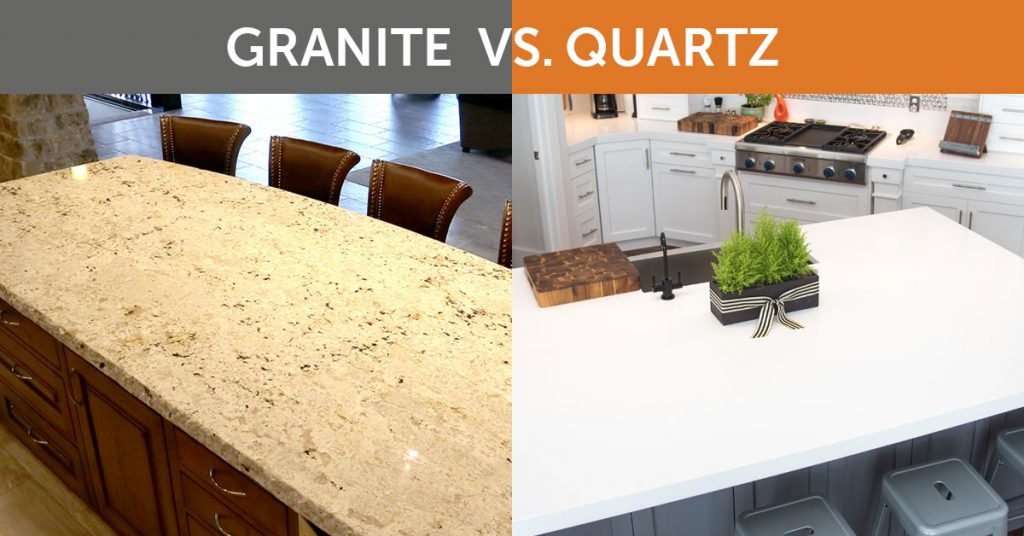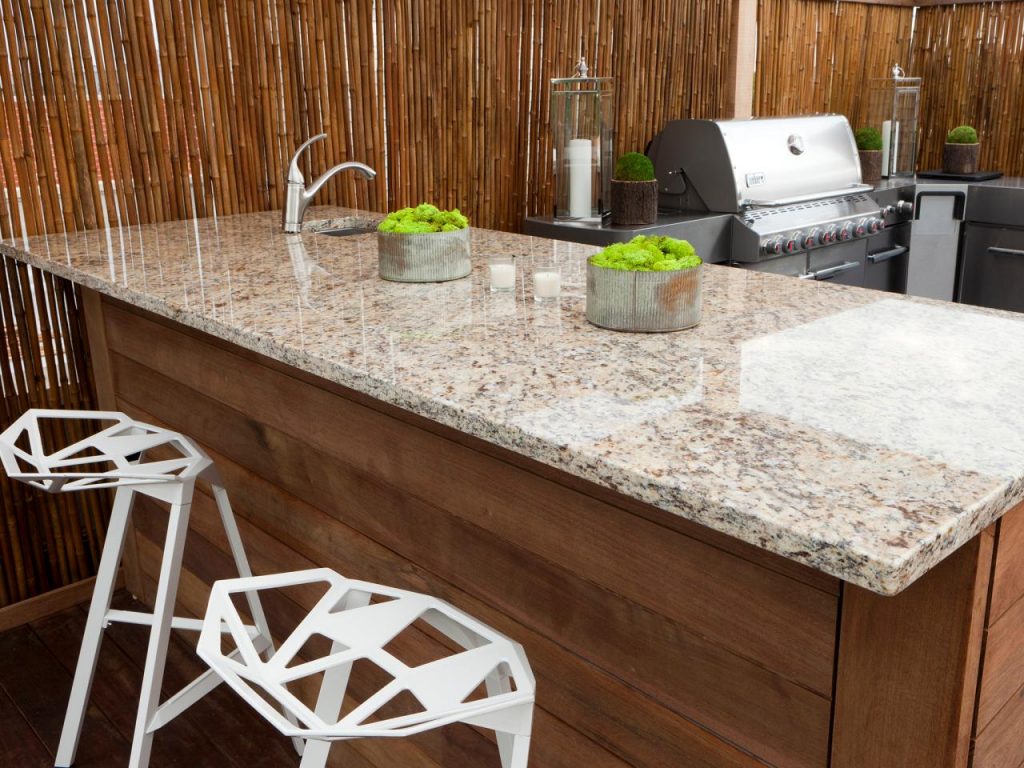It’s easy to agonize over every decision in a kitchen renovation. Once the excitement of the project wanes and the pressure to get it right kicks in, suddenly all of the choices that go into creating a dream kitchen feel like the difference between failure and success. And one of those seemingly make-or-break judgments is often which countertops to pick: the popular quartz, or the equally popular granite.
But Meredith Barclay, a merchant of countertops at The Home Depot, doesn’t want you to have a breakdown in one of her aisles over this. Take a deep breath, because her key advice should make you feel at ease.
“Granite and quartz countertops are both top-of-the-line options within the same range of prices,” she says.
The list of similarities between quartz and granite countertops shouldn’t make one material feel superior to the other, if that’s been weighing on your mind. But if you want to know the differences between the two—in the hopes of finalizing your pro-con list once and for all—we asked Barclay to give us the details on which is best for your countertops. Read on, but remember: Your dream kitchen will happen, even if it feels like it’s 1,000 little decisions away.
What’s in Granite Countertops?
As one of the most popular countertop materials, granite gained its good reputation for being resistant to scratches, high levels of heat, and tough stains. Furthermore, because granite is a natural stone that’s cut into slabs to fit countertops, it’s possible to get a pattern that’s entirely your own. “The patterns are what make granite unique,” Barclay says. “These countertops are what typically add an extra wow factor to any kitchen because of their elegance and beauty.”

On the flip side, because granite is entirely natural, it won’t be available in a range of colors and styles. Its porous makeup also requires that homeowners reseal their countertops every eight to 10 years to protect its surface.And given that granite tends to be one of the more expensive options to choose from, that added cost can make this material too pricey for some renovations.
“For reference, an average countertop project covers a surface area of 40 square feet and features 25 feet of finished edges,” Barclay notes. “Granite typically falls within the $40 to $100 range per square foot, at an average of $58 per square foot, depending on the color.”
What’s in Quartz Countertops?
Often when homeowners are shopping for quartz countertops, what they’re looking at is engineered quartz. Engineered quartz is made mostly from the natural material, but is also mixed with pigments and resin to make it durable, versatile, and easy to clean. Much like granite, quartz countertops are also resistant to stains and scratches, but come in a wider range of colors and designs—like versions of white marble, without the white marble cost. And because it’s partly man-made, quartz countertops are non-porous and don’t need to be resealed.

That being said, quartz does have its downsides. It’s resistant to heat up to 400 degrees, but can show what’s called “thermal shock” if temperatures exceed that limit.If that happens, such as when a slow cooker is left out for an extended period of time, it may cause the quartz to crack.HOUSE BEAUTIFUL
And as for cost? Quartz typically sets homeowners back $50 to $90 per square foot, Barclay says. “That’s an average of $68 per square foot,” she notes.
So Which Option Should You Choose?
“The decision really comes down to the homeowner’s style and color preferences,” she adds. “If the priority is one-of-a-kind beauty, then you cannot top granite’s look. But if you want a more consistent color or a white marble look, opt for the quartz countertops.”

Keep in mind that installing countertops is not a DIY project and should be done by professionals, she says, and that it’s helpful to use a cost estimator to make sure that your brainstorming matches your budget.
Whichever material you choose, have confidence that it was the right decision. If anything, it’s one less choice you have to make before you can enjoy a finished kitchen.
